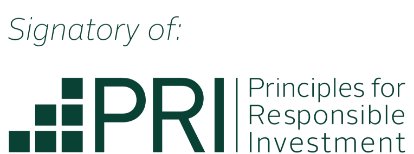As the 2030 Sustainable Development Goals bring gender disparities into sharp focus, Japan grapples with its traditional norms while showing hints of positive shifts. Here, we explore the root causes behind gender inequality, the role of government and how investors can bring about positive change.
Progress on the Sustainable Development Goals: The gender snapshot 2023
Halfway to the end point of the 2030 Agenda for Sustainable Development, the world is failing to achieve gender equality, making it an increasingly distant goal. If current trends continue, more than 340 million women and girls will still live in extreme poverty by 2030, and close to one in four will experience moderate or severe food insecurity. Growing vulnerability brought on by human-induced climate change is likely to worsen this outlook, as many as 236 million more women and girls will be food-insecure under a worst-case climate scenario.
The gender gap in power and leadership positions remains entrenched, and, at the current rate of progress, the next generation of women will still spend on average 2.3 more hours per day on unpaid care and domestic work than men. No country is within reach of eradicating intimate partner violence, and women’s share of workplace management positions will remain below parity even by 2050. Fair progress has been made in girls’ education, but completion rates remain below the universal mark.
The view from Japan
Japan currently ranks 125th out of 146 countries in the World Economic Forum’s gender gap ranking and unfortunately, the rank is falling. There are numerous factors contributing to Japan’s lag in gender equality. It’s important to recognize that these cultural norms aren’t unique to Japan, but what’s more crucial is understanding why change is slow.
Deep-seated cultural norms
Several reasons contribute to the inertia. The first is deeply ingrained gender norms and fixed roles within society. Japan’s patriarchal influence dates back, and these roles persist, affecting both the workplace and family dynamics.
There is a culture of extended working hours, where men are often at the workplace for long stretches, places a considerable portion of domestic responsibilities on women. Options for external support, such as hiring nannies or accessing grants, can be both limited and costly. Women haven’t been assured a place in the workforce, making economic independence difficult.
This situation is further complicated by the gender pay gap that still exists.
Even with the growing global conversation around diversity and inclusion, Japan continues to navigate its unique challenges regarding gender perspectives in the business domain. Some Japanese executives and CEOs assert that they hire and promote the “brightest and smartest,” a claim that often translates to male-centric decision-making.
Positive change on the horizon?
While Japan’s gender inequality problem is multifaceted, recent years have witnessed a shift towards more proactive measures.
The Japanese government is taking steps to address the issue. Though Japan lacks quotas or clear obligations for gender diversity, it has set goals for companies to have 30% female executives by 2024. While this target remains unmet, mandatory disclosures related to gender pay gaps and the representation of women in management are being enforced, signalling a growing commitment to change.
Japan has shown a growing openness to insights from abroad, especially European countries like Norway and Sweden, which have pioneered various approaches to addressing gender equality. These nations have offered valuable case studies and ideas for Japanese companies and policymakers.
While Japan has been receptive to international insights, there’s still room for improvement in government policies. For instance, Japan’s tax system has inadvertently discouraged women from pursuing higher-paying careers. There’s a clear need for more comprehensive policies that actively promote gender equality and address systemic issues like these.
Investors have started exerting pressure on Japanese companies, a move that has gained traction in recent years. European and American investors, known for their strong emphasis on corporate social responsibility, have begun raising questions about gender equality and the gender pay gap within Japanese corporations.
A new lens on ESG
When it comes to addressing gender issues in the business world, the prevailing perspective has often been Eurocentric and heavily focused on governance – specifically, the representation of women in top leadership positions. However, at SDG Impact Japan, our approach to gender issues is distinctive. Instead of merely concentrating on the visible tip of the iceberg, we dive deeper and perceive gender equality as a social issue, not just a governance one. While having a female CEO might be commendable, it doesn’t inherently signify a company’s holistic approach to gender equality, nor does it guarantee an equitable supply chain.
We delve into the core of business operations to examine on-the-ground realities that often get overshadowed by boardroom statistics. We are committed to understanding the working conditions, wages, benefits, working hours, contract details, and insurance coverage that cater specifically to women in Japan, especially those at the middle and lower echelons of a company. True gender equality means ensuring that middle or low management women can avail maternity leave and return to their roles without fearing a reset in their careers.
For every company we invest in, we introduce a gender KPI that evaluates not just the representation of women on boards but also scrutinizes factors often overlooked by other investors. We aim to shed light on wage gaps, the prevalence of temporary contracts for women, and their overall working conditions. Our conviction lies in the belief that creating real change necessitates examining the entirety of the business structure, not just its facade.
Envisioning a more equitable future
Looking ahead, it’s essential to remain optimistic about Japan’s progress in gender equality. There is no illusion around the challenges which persist. However, there’s growing momentum for change, with investors and corporations increasingly recognizing the benefits of diversity and inclusion. In the next five years, the hope is to witness a significant reduction in the gender pay gap, aiming to climb higher on the World Economic Forum’s rankings. This shift would not only signify economic progress but also contribute to the resolution of pressing social issues and a more equitable future for all.
本資料は情報提供と教育のみを目的としたものであり、いかなる商品の売買を勧誘するものではありません。本情報は投資助言とみなされるものではなく、また、取り上げた証券、商品、サービスがいかなる投資家にも適していることを表明するものでもありません。投資家は、十分な情報に基づいて投資判断を下す過程において、本資料に含まれるいかなる情報にも依存しないようお勧めします。本資料には市場分析が含まれている場合があります。本資料で明示的または黙示的に示されたアイデア、意見、および/または予測、含まれる情報、図表、または例はすべて、情報提供および教育目的のみのものであり、市場への投資、取引、および/または投機を推奨するものと解釈されるべきではありません。ここに明示または黙示されたアイデア、意見、および/または予測に照らして行われる投資、取引、および/または投機は、金銭的、またはその他のリスクで行われるものです。本サイトは、税務上または法律上のアドバイスを提供するものではありません。また、本資料に掲載されている情報は、有価証券の勧誘、売買、有価証券の処分、有価証券の売買注文の勧誘、有価証券の売買注文の勧誘、有価証券の売買注文の勧誘、有価証券の売買注文の勧誘、有価証券の売買注文の勧誘、有価証券の売買注文の勧誘、有価証券の売買注文の勧誘、有価証券の売買注文の勧誘、有価証券の売買注文の勧誘、有価証券の売買注文の勧誘、有価証券の売買注文の勧誘、有価証券の売買注文の勧誘を行うものではありません。

